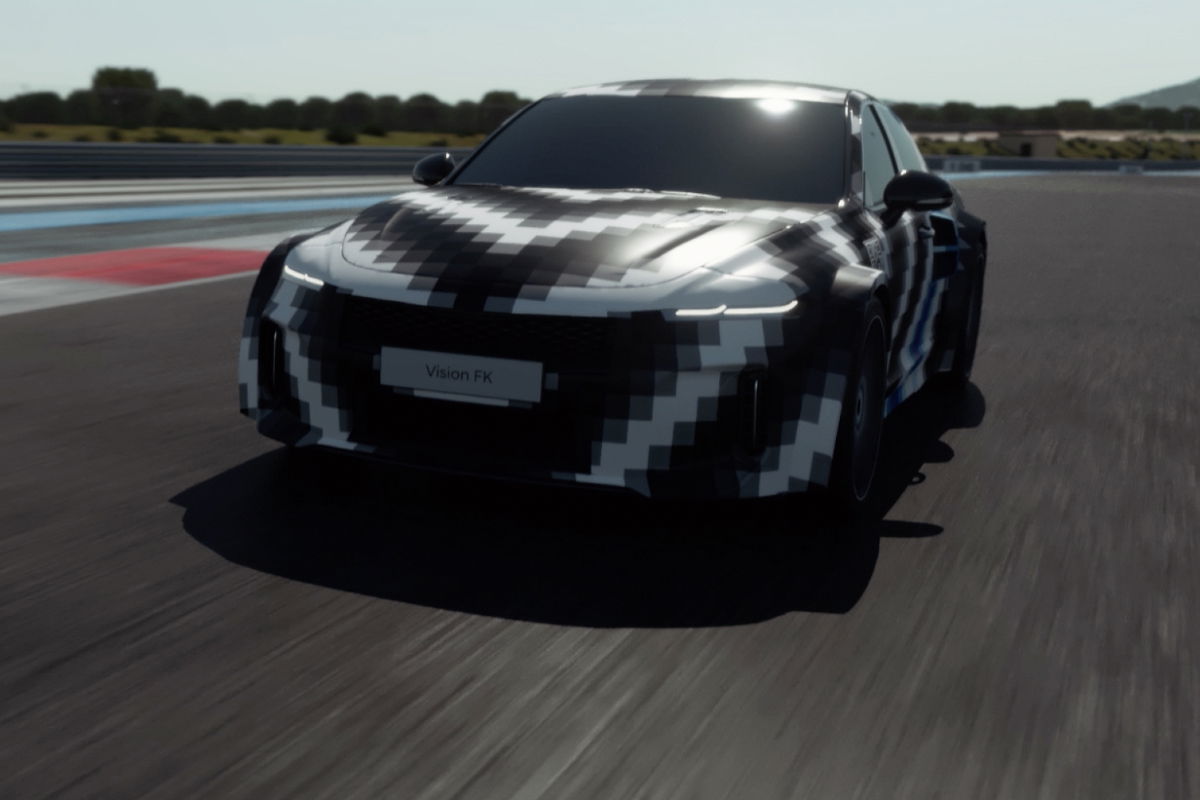
Hyundai has unveiled a new take on the future of performance cars, the hydrogen-powered Vision FK.
It’s a 500kW sports sedan powered by a combination of a hydrogen fuel cell and rear-wheel drive electric motor – sourced from EV partner, Rimac. This combination is good for more than 600km of range while still allowing the Vision FK to accelerate from 0-100km/h in less than four seconds.
The decision to use the Rimac battery technology, instead of its own ‘e-GMP’ electric vehicle architecture is believed to be down to difficulties packaging the complex powertrain inside a coupe body. The Rimac motor and batteries are likely based on the same used on the Nevera hypercar, which is why Hyundai’s head of R&D said the Vision FK was “overkill” from a technical standpoint.
READ MORE: Hyundai teases hydrogen racing future
Hyundai didn’t confirm when the Vision FK would evolve from a prototype to a showroom model but the brand is known to be seriously considering introducing a production hydrogen fuel cell vehicle (HFCV) from its N Performance brand; and will even go racing with the technology. Back in July, at the reveal of the i30 Sedan N, Thomas Schemera, Executive Vice President of Hyundai, teased the possibility of this powertrain set-up.

“Pairing hydrogen and battery power could open up very interesting future options for Hyundai in motorsports and beyond,” Schemera said at the time. “Hydrogen can be used as a range extender or power booster. We have the technology available and I’m quite confident that we can make this happen.”
The Vision VK takes the form of a sports coupe that isn’t based on any existing Hyundai model, unlike the previous Veloster-based ‘RM’ concepts. This could be a sign that the brand is moving closer to its long-planned standalone N-branded sports car.
READ MORE: Hyundai plotting electric Ioniq 5 N performance model
The Vision FK is just the halo model for a much wider range of HFCV Hyundai Motor Group (which includes Kia and Genesis) wants to roll-out as part of what it’s calling a ‘Hydrogen Wave’. That plan is aiming for wide scale use of the technology across the automotive sector by 2040.
To that end the brand will introduce two new fuel cell systems by 2023 – one making 100kW and the other 200kW – that will be 50 per cent cheaper and 30 per cent smaller than the current fuel cell stack found in the Hyundai Nexo. It believes by 2030 it can get HFCV on price parity with EV models.

The Group confirmed it will have HFCV in all of its commercial vehicles by 2028. To demonstrate the possibilities for autonomous hydrogen models including a Trailer Drone and an emergency rescue vehicle.
Hyundai Group chairman, Euisun Chung, explained his goal for the next two decades is to make hydrogen accessible and affordable.
“Hyundai Motor Group’s vision is to apply hydrogen energy in all areas of life and industry such as our homes, workplaces and factories,” Chung said. “The goal is to make hydrogen readily used for everyone, everything, and everywhere. We want to offer practical solutions for the sustainable development of humanity and with these breakthroughs, we aim to help foster a worldwide Hydrogen Society by 2040.”












Discussion about this post